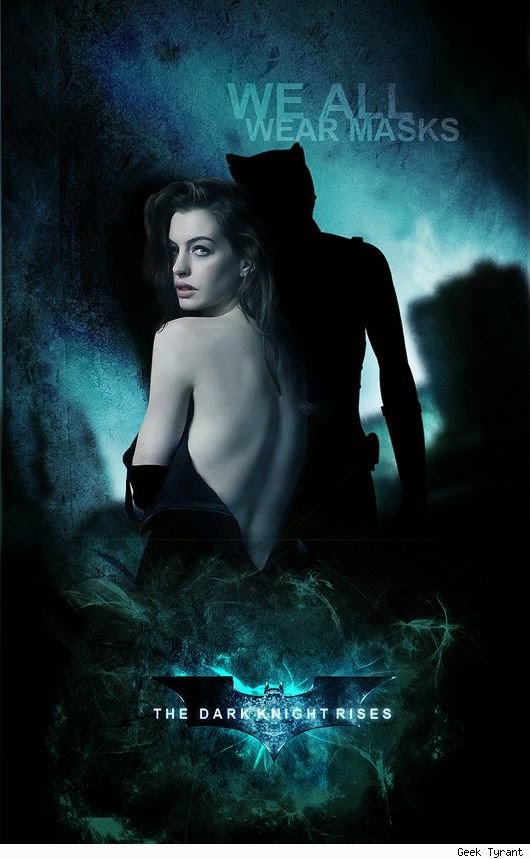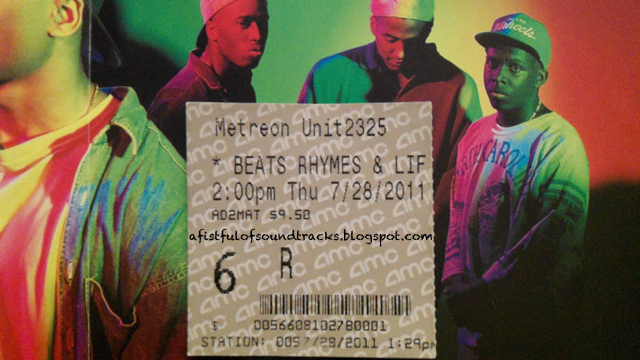A few days ago, I was looking for the YouTube link to that old viral video of a KTLA morning TV interviewer transforming into a total dweeb after Christina Hendricks, star of the recently-concluded-for-good, unlikely-to-do-reunion-movies-guest-starring-the-Harlem-Globetrotters AMC hit Mad Men, mentions how she received news of her first-ever Emmy acting nomination while she was preparing to take a bath. The image of her bathing is all the interviewer can talk about for the rest of the interview. Way to keep it professional, KTLA guy! "He sits there silently for a whole minute, and by the time he gets back into the conversation, he's a stuttering mess. Although to his credit, he still has his pants on," wrote Uproxx in 2010.
This wasn't Conan turning his awkwardness around hot women into the kind of comedy bit Inside Amy Schumer hilariously parodied in its recent sketch about the clichés that always take place during late-night talk show interviews with flirty female guests (I love how Schumer's sketch references that 2009 Conan-era Tonight Show interview where Gwyneth Paltrow's legs somehow got greasier and greasier after each commercial break). This was a journalist who, in front of an all-female news desk, was unable to prevent himself from regressing into a nervous 14-year-old school dance attendee in the middle of one of the least suitable places for doing that, a mostly non-comedic morning news show, with Hendricks throwing in a couple of amusing "Down, boy!"-type responses, like "That [bath story] was like two conversations ago, but thank you for remembering," which were both why the clip went viral. Why do the most awkward and NewsBeFunny YouTube channel-friendly things always happen on morning shows, whether it's TheTodayShow, The View or Fox& Friends?
Then I finally found the KTLA clip and copied and pasted into TextEdit both the URL and embed code, which is something I always need to do with YouTube videos I might want to include someday in posts such as this. I gave the TextEdit file the name of "Christina Hendricks Handles Brian McFayden's Drooling Like a Trooper."
But as I was typing out the file name, I became unsure about the spelling of "trooper." I kept changing it back and forth between "trooper" and "trouper."
I hear the expression "handling it like a trooper" all the time. But I've never stopped to think, "Where the hell does that expression come from?"
I opened the dictionary in my MacBook. A trooper is either "a state police officer" or "a private soldier in a cavalry, armored or airborne unit." I knew that. I didn't know a trooper can also be "a cavalry horse" or British jibber-jabber for "a ship used for transporting troops." So in the U.K., I guess that means the novel and movie title Starship Troopers sounds to them like Starship Starships. The title Starship Starships would be as absurd as whitewashing the Filipino hero of a sci-fi novel, which Hollywood would never do, right? Oh, wait...
Meanwhile, a trouper is "an actor or other entertainer, typically one with long experience" or "a reliable and uncomplaining person." I always thought it was "handling it like a trooper" because they're handling it like a brave soldier or a slick and smooth member of the '90s R&B group Troop.
I guess "a reliable and uncomplaining person" makes sense too. So which sides have professional writers taken in the war between "trouper" and "trooper"? While mentioning Sopranos star Nancy Marchand back in his Newark Star-Ledger, pre-HitFix days (the year 2000, to be exact), TV critic Alan Sepinwall said, "Marchand, who has cancer, proved herself to be a real trouper." Over at MTV News, where a Nicki Minaj backup dancer who received a snake bite qualifies as news, they said that the bitten dancer "handled it like a trooper." Meanwhile, what do etymologists outside of Dr. Webster, Dr. Merriam, Dr. Wagnalls and Dr. Uptown Funk have to say about all this?
The Grammarphobia Blog says "trouper," which also means "a member of a performing company (theatrical, singing or dancing)," also known as a troupe, has evolved in the 20th century so that the term can be used to refer to "a hard worker, a good sport, a reliable person, a mensch." Their stand on "Trouper or trooper?" is "trouper" over "trooper" because it's been spelled "trouper" since the 19th century, but due to Google searches showing "like a trooper" to be more commonly used than "like a trouper,""trooper" is alright with them too.
I also checked with a site called Daily Writing Tips. The site, which notes that "troop" and "troupe" both originated from the same French word ("troupeau," a variation of "troppus," the Latin word for "flock," according to my MacBook's dictionary), takes the following stand: "If the context has to do with courage, trooper is appropriate. If the context has to do with cooperation, dependability and the show business attitude of 'the show must go on,' then trouper is the word to use."
Joan from Mad Men was both a bit courageous (to be awake and sharp-witted that early in the day) and very unflappable in the face of live-on-L.A.-morning-TV drooling. So either spelling is correct--unless you're in the galaxy where a band of rebels has been fighting an oppressive intergalactic empire for decades and "handling it like a trooper" means you're handling it like a genocidal space Nazi in a shiny white helmet.
This wasn't Conan turning his awkwardness around hot women into the kind of comedy bit Inside Amy Schumer hilariously parodied in its recent sketch about the clichés that always take place during late-night talk show interviews with flirty female guests (I love how Schumer's sketch references that 2009 Conan-era Tonight Show interview where Gwyneth Paltrow's legs somehow got greasier and greasier after each commercial break). This was a journalist who, in front of an all-female news desk, was unable to prevent himself from regressing into a nervous 14-year-old school dance attendee in the middle of one of the least suitable places for doing that, a mostly non-comedic morning news show, with Hendricks throwing in a couple of amusing "Down, boy!"-type responses, like "That [bath story] was like two conversations ago, but thank you for remembering," which were both why the clip went viral. Why do the most awkward and NewsBeFunny YouTube channel-friendly things always happen on morning shows, whether it's TheTodayShow, The View or Fox& Friends?
Then I finally found the KTLA clip and copied and pasted into TextEdit both the URL and embed code, which is something I always need to do with YouTube videos I might want to include someday in posts such as this. I gave the TextEdit file the name of "Christina Hendricks Handles Brian McFayden's Drooling Like a Trooper."
But as I was typing out the file name, I became unsure about the spelling of "trooper." I kept changing it back and forth between "trooper" and "trouper."
I hear the expression "handling it like a trooper" all the time. But I've never stopped to think, "Where the hell does that expression come from?"
I opened the dictionary in my MacBook. A trooper is either "a state police officer" or "a private soldier in a cavalry, armored or airborne unit." I knew that. I didn't know a trooper can also be "a cavalry horse" or British jibber-jabber for "a ship used for transporting troops." So in the U.K., I guess that means the novel and movie title Starship Troopers sounds to them like Starship Starships. The title Starship Starships would be as absurd as whitewashing the Filipino hero of a sci-fi novel, which Hollywood would never do, right? Oh, wait...
Meanwhile, a trouper is "an actor or other entertainer, typically one with long experience" or "a reliable and uncomplaining person." I always thought it was "handling it like a trooper" because they're handling it like a brave soldier or a slick and smooth member of the '90s R&B group Troop.
I guess "a reliable and uncomplaining person" makes sense too. So which sides have professional writers taken in the war between "trouper" and "trooper"? While mentioning Sopranos star Nancy Marchand back in his Newark Star-Ledger, pre-HitFix days (the year 2000, to be exact), TV critic Alan Sepinwall said, "Marchand, who has cancer, proved herself to be a real trouper." Over at MTV News, where a Nicki Minaj backup dancer who received a snake bite qualifies as news, they said that the bitten dancer "handled it like a trooper." Meanwhile, what do etymologists outside of Dr. Webster, Dr. Merriam, Dr. Wagnalls and Dr. Uptown Funk have to say about all this?
The Grammarphobia Blog says "trouper," which also means "a member of a performing company (theatrical, singing or dancing)," also known as a troupe, has evolved in the 20th century so that the term can be used to refer to "a hard worker, a good sport, a reliable person, a mensch." Their stand on "Trouper or trooper?" is "trouper" over "trooper" because it's been spelled "trouper" since the 19th century, but due to Google searches showing "like a trooper" to be more commonly used than "like a trouper,""trooper" is alright with them too.
I also checked with a site called Daily Writing Tips. The site, which notes that "troop" and "troupe" both originated from the same French word ("troupeau," a variation of "troppus," the Latin word for "flock," according to my MacBook's dictionary), takes the following stand: "If the context has to do with courage, trooper is appropriate. If the context has to do with cooperation, dependability and the show business attitude of 'the show must go on,' then trouper is the word to use."
Joan from Mad Men was both a bit courageous (to be awake and sharp-witted that early in the day) and very unflappable in the face of live-on-L.A.-morning-TV drooling. So either spelling is correct--unless you're in the galaxy where a band of rebels has been fighting an oppressive intergalactic empire for decades and "handling it like a trooper" means you're handling it like a genocidal space Nazi in a shiny white helmet.


























































































